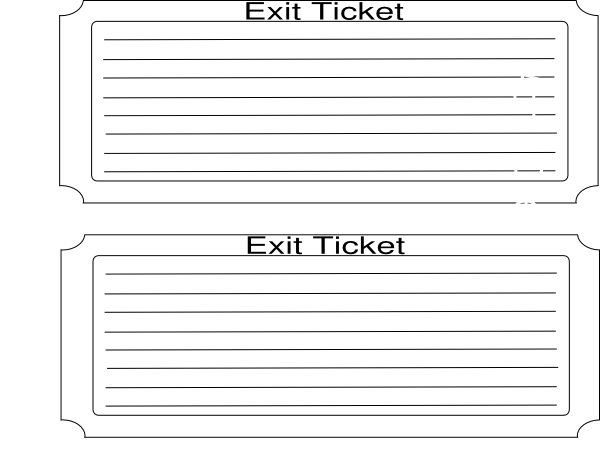09.11.15(Even) More on Analyzing Exit Tickets
 Earlier today I posted about a conversation we’d had at #TLaC towers on the topic of Exit Tickets.
Earlier today I posted about a conversation we’d had at #TLaC towers on the topic of Exit Tickets.
John Costello–one of my colleagues on Team TLaC–sent me an email with further thoughts on the post. He focused in particular on the critical importance of depth of information in revealing student thinking (and implicitly on the importance of designing Exit Tickets to reveal that depth). It was super-insightful and so I thought I’d share his thoughts here:
Hi, Doug,
I really liked (and agreed) with the rationale for why “They did really well at A but struggled with B” is better than the contextless “76% of my students mastered the content.”
Yet, as I was reading I couldn’t shake the feeling that we were talking about Exit Tickets the same way that we talk about effective Do Nows. I feel strongly that an Exit Ticket can be more than a Do Now you give at the end of your lesson. Obviously there’s a lot of overlap between what makes a good Exit Ticket and what makes a good Do Now, but I think Exit Tickets are more powerful because they also allow you to get detailed individualized reports on each student’s learning.
My thinking is that a good Exit Ticket has both a multiple choice question (with a right answer, 2-3 well-crafted distractors, and a wrong-is-wrong choice) and an open-ended response where students explain their rationale. To get “my students understand A but they don’t understand B,” I think multiple choice questions (with specific concept-based distractors) are sufficient, but what an Exit Ticket gives you that a Do Now does not is the time to carefully read through each student’s rationale and pinpoint where the comprehension breakdowns occur. Beyond telling you what concept a student is misunderstanding, it starts to illuminate why they’re misunderstanding it – something I found incredibly valuable when I was revising my plans.
Basically, I couldn’t assume I understood why a student was missing a concept until they explained to me the thinking that led them to the wrong answer – and reading the Exit Tickets each night was my opportunity to get that detailed information before I got to teach the next day. Perhaps a more experienced teacher could rapidly surmise the reason for student misunderstandings without reading a paragraph of the student’s rationale, but I couldn’t and Exit Tickets were my saving grace. (I think the rationale paragraph also helped me get a sense of my student’s voices and how they thought about history – something that helped me tremendously in building strong relationships with them.)
